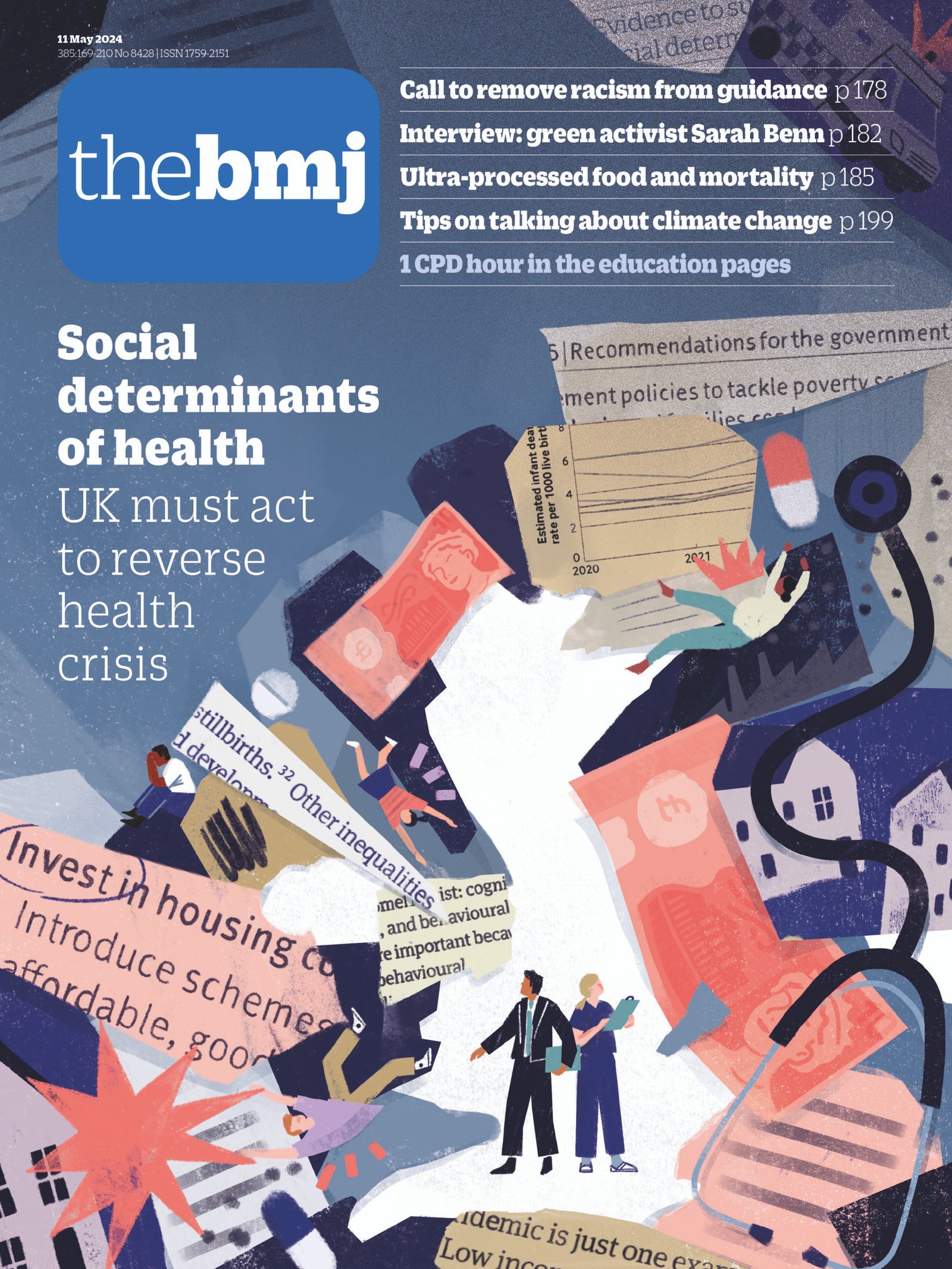In some parts of England, there are proposals to divide NHS primary care services. NHS England’s strategy aims to separate patients with “same-day” acute care or with “simpler” medical issues from patients with more complex, long term needs. The aim is to allow general practitioners (GPs) to primarily focus on the latter group of patients.12 While this approach appears superficially to be a rational solution to manage escalating workload in general practice by diverting some patients to be managed elsewhere, it also raises substantial concerns about the potential unintended effects. This proposed division of work undermines a comprehensive and integrated care approach in primary care, and will hinder ongoing health management and preventive care of patients.
A key strength of general practice lies in its holistic approach to caring for patients and providing continuity of care. GPs’ comprehensive understanding of a patient’s health history, including long term conditions, lifestyle, and psychological aspects, is crucial in delivering clinically effective and cost-efficient care..3 However, fragmentation of services by partitioning acute and long term care can weaken this holistic approach and diminish continuity of care. This disruption will be particularly detrimental to patients with chronic conditions, who often experience acute medical deteriorations that are directly related to their ongoing health conditions.4
Providing separate services for different aspects of primary care also increases the likelihood of missing serious underlying health issues. Acute symptoms, often perceived as simple, can be early signs of more serious pathology. For example, a chronic cough could be indicating a more severe underlying disease such as lung cancer or tuberculosis. A fragmented service model reduces opportunities for GPs to conduct the comprehensive health evaluations necessary for early detection and management of critical conditions, as well as important health promotion discussions such as on topics like smoking cessation and vaccination.

Beyond the clinical implications, separating primary care services could affect NHS efficiency and costs.5 Duplication of services and higher administrative overheads will increase healthcare expenses without improving patient outcomes or clinician productivity.6 The split of services may also result in confusion, especially for those in vulnerable groups like older people or non-native English speakers who already struggle with navigating the existing healthcare system. This may further deter them from seeking care when needed or causing them to choose inappropriate services, thereby exacerbating accessibility issues.7
The fragmentation of primary care could also significantly affect the education and continuing professional development of GP registrars and practising GPs. GP registrars rotate through various general practices to gain experiences and exposure in managing both acute and complex medical presentations. Allocating them to “acute care hubs” may not be a suitable alternative. The limited supervision in these hubs, often with only one qualified GP available, may not provide the diverse learning experiences necessary for managing a range of acute presentations and combining this with the ongoing care of patients with complex health needs.8 So, separating these services could lead to a decline in the ability of GP trainees and qualified GPs to manage acute medical problems effectively and holistically.
The vision for NHS primary care should focus on integration, not fragmentation. By combining acute and long term care needs, integrated care models can offer comprehensive care that benefits both patients and health professionals. Although these changes may be more difficult to implement in the short term, they are associated with better patient health outcomes and more efficient use of healthcare resources. Through recruiting multidisciplinary team members such as district nurses, therapists, social workers, pharmacists, care-coordinators and social prescribers to work as part of a comprehensive primary care team, we can provide a more coordinated approach to tackle a full spectrum of health issues.9 This model fosters stronger patient-provider relationships, improves patient satisfaction and empowerment, and is more cost-effective than the fragmented services currently being implemented in parts of England. Other interventions to help GPs improve integrated care include reducing their administrative burden through training non-clinical staff to take on some of this work; and improving working arrangements and the integration of health records across the primary-secondary care interface to reduce duplication of data entry and improve the accuracy of records.10
It is crucial to preserve the essence of primary care and its ability to provide patient-centred care. Efforts need to focus on strengthening integrated care models, enhancing general practice capacity, and improving service efficiency, rather than promoting separate care pathways that risk creating duplication of services and increasing NHS costs. Only through a comprehensive and holistic approach can primary care continue to meet the evolving health needs of the population without compromising the cost, quality, or continuity of NHS care.
Footnotes
-
Acknowledgments: Imperial College London is grateful for support from the NIHR Applied Research Collaboration North west London. The views expressed in this publication are those of the authors and not necessarily those of the NIHR or the Department of Health and Social Care.
-
Competing interests: none declared.
References
- ↵
- ↵
- ↵
- ↵
- ↵
- ↵
Timmins L, Kern L, Ghosh A, Urato C, Rich E. Predicting fragmented care: beneficiary, primary care physician, and practice characteristics. (2021) Health Services Research. Sep;56:60-1. (Accessed: 3 March 2024).
- ↵
- ↵
- ↵
Saint-Pierre C, Herskovic V, Sepúlveda M. Multidisciplinary collaboration in primary care: a systematic review. (2018) Family practice. Apr;35(2):132-41. (Accessed: 3 March 2024).
- ↵
Akbarov A, Kontopantelis E, Sperrin M, Stocks SJ, Williams R, Rodgers S, Avery A, Buchan I, Ashcroft DM. Primary care medication safety surveillance with integrated primary and secondary care electronic health records: a cross-sectional study. (2015) Drug safety. Jul;38:671-82. (Accessed: 3 March 2024).










